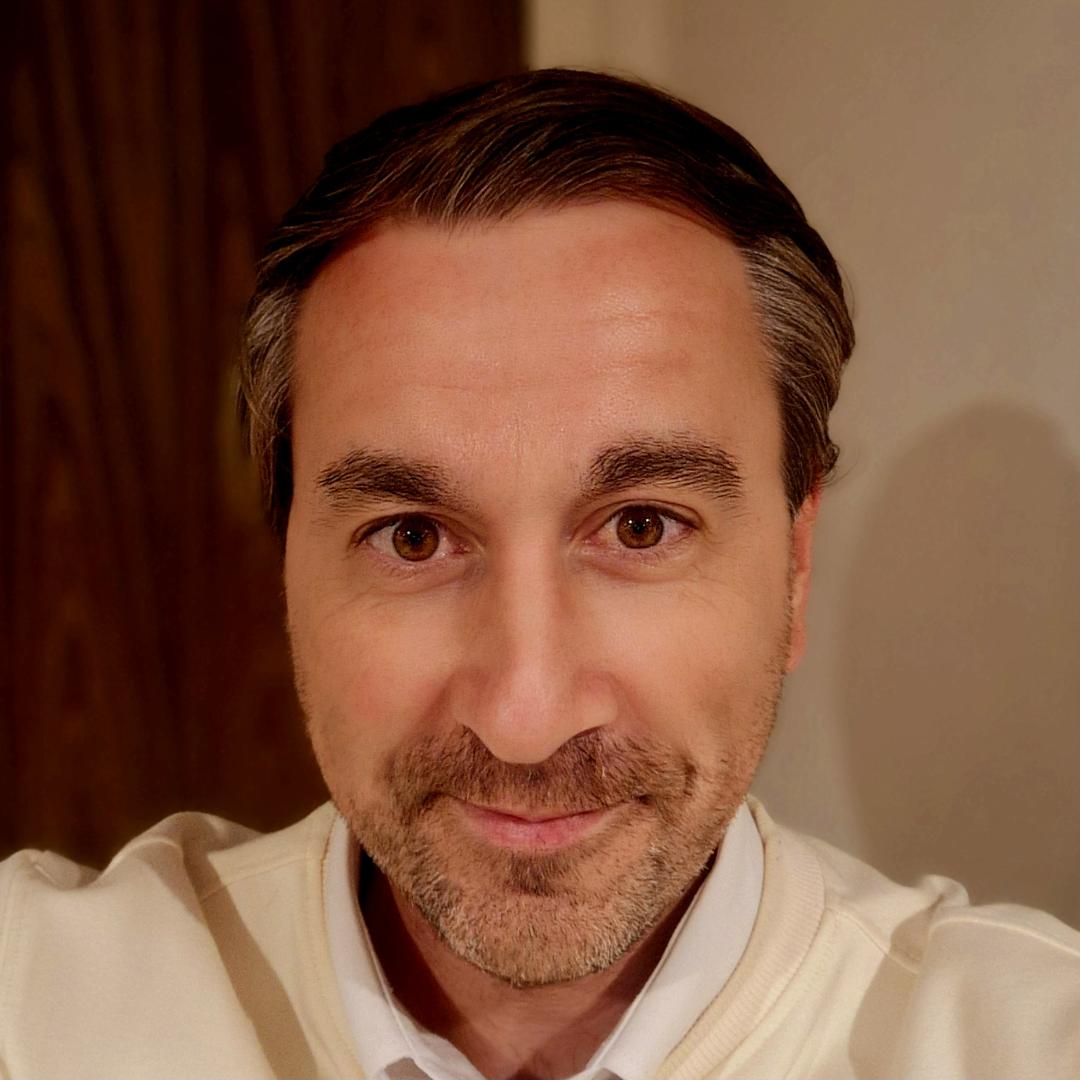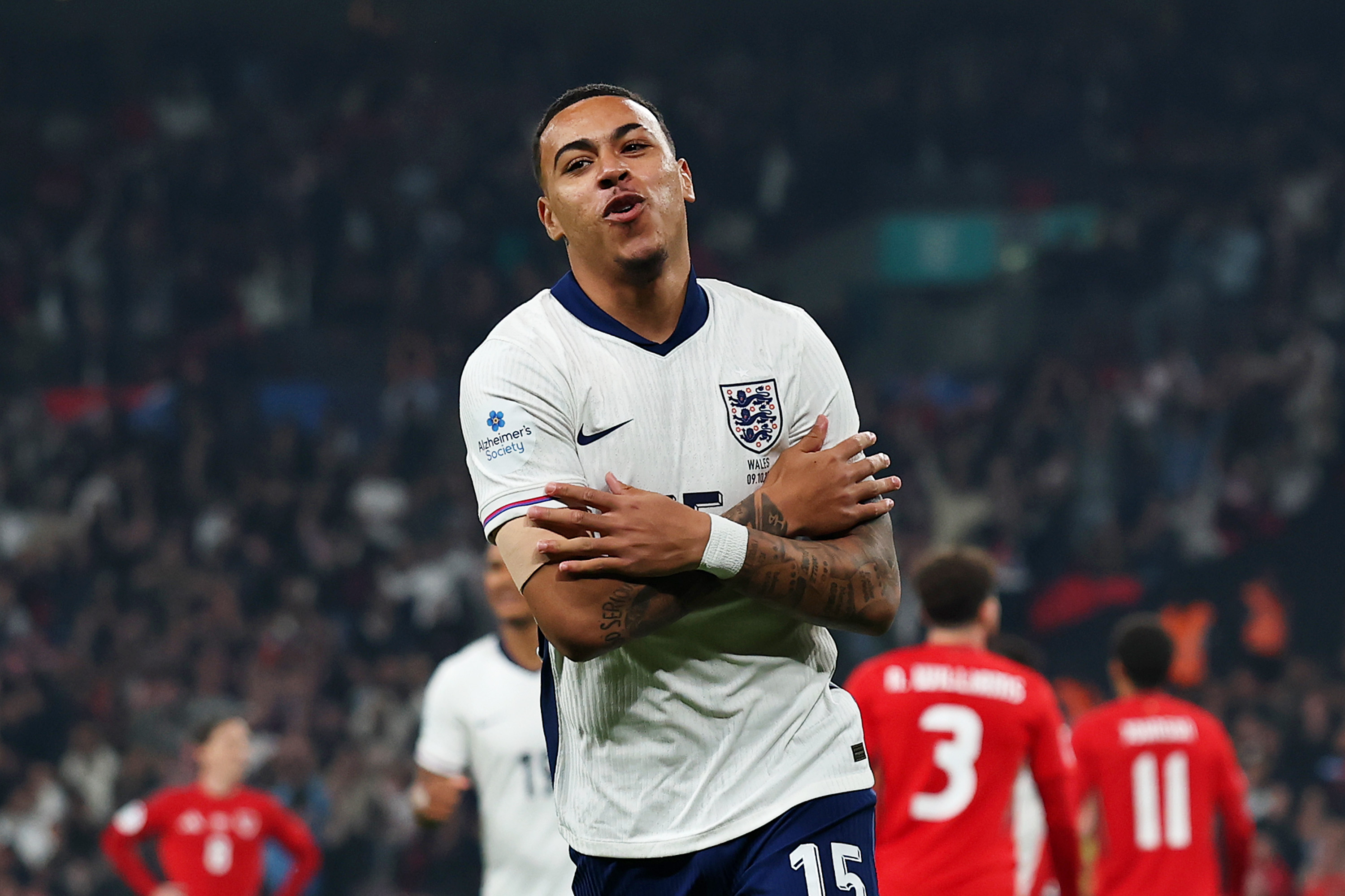France United: How Deschamps made Les Bleus the perfect team for 2014
Didier Deschamps' France have caught the eye more than most in Brazil. James Eastham explains how the captain of '98 has lifted the gloom that previously hung over Les Bleus...
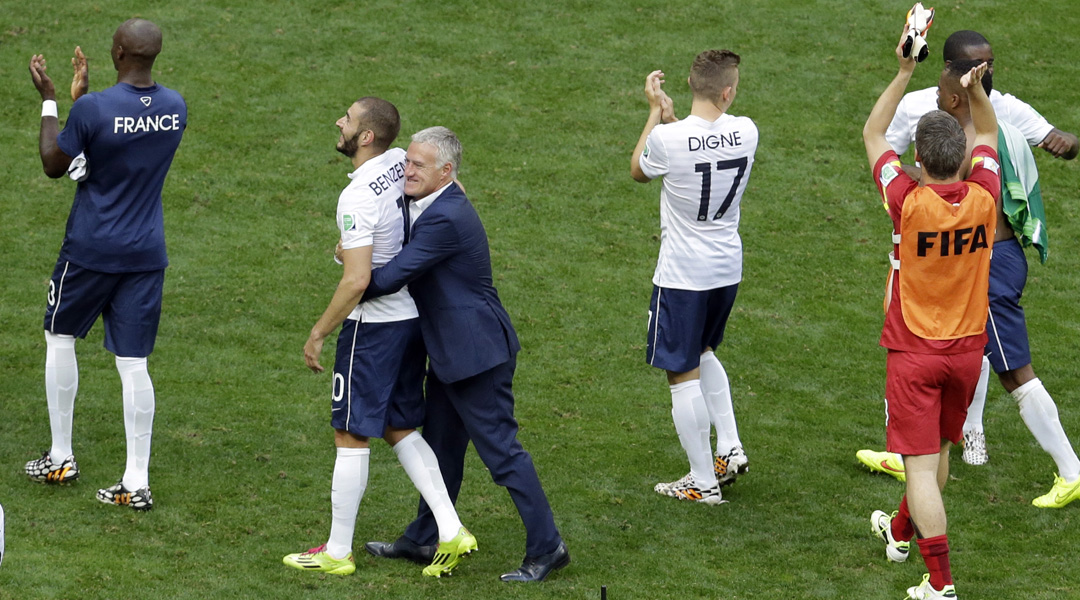
The best features, fun and footballing quizzes, straight to your inbox every week.
You are now subscribed
Your newsletter sign-up was successful
Want to add more newsletters?

Five times a week
FourFourTwo Daily
Fantastic football content straight to your inbox! From the latest transfer news, quizzes, videos, features and interviews with the biggest names in the game, plus lots more.

Once a week
...And it’s LIVE!
Sign up to our FREE live football newsletter, tracking all of the biggest games available to watch on the device of your choice. Never miss a kick-off!
Join the club
Get full access to premium articles, exclusive features and a growing list of member rewards.
One of the most notable features of France’s impressive run to the World Cup quarter-finals is how un-French the team is. This is, after all, a country that has always needed a totemic beacon of a player to do well on the pitch.
Raymond Kopa in the 1950s, Michel Platini in the 1980s and Zinedine Zidane in the 1990s and 2000s. Such has been the influence of this trio that, ahead of this tournament, no France squad without Kopa, Platini or Zidane in its ranks had won a World Cup game since 1938.
So it’s to coach Didier Deschamps’ enormous credit that he’s put together arguably the most complete team at this year’s World Cup. 'Team' being the key word – because that’s exactly what France are. While other nations have relied on a single, standout performer to carry them this far – be that James Rodriguez, Lionel Messi, Neymar or Arjen Robben – France have been all about a cohesive game plan, a team collective and, unlike other recent campaigns, harmony on and off the pitch.
This has partly happened by accident. On the eve of the tournament there were fears about France’s chances when Franck Ribery pulled out with a back injury. An unhappy loser for the Ballon d’Or award at the start of the year, Ribery was France’s key player in the qualifiers, contributing five goals and six assists in 10 games.
Yet the Bayern Munich winger’s absence has turned out to be a blessing in disguise. On the pitch, it has handed Karim Benzema a more prominent role than he otherwise may have enjoyed, and enabled Deschamps to make better use of Antoine Griezmann and Olivier Giroud, who have rotated in and out of the side nicely.
Off the pitch, there is a feeling Ribery’s absence has liberated some of the other players, too. A practical joker, Ribery can be a force for good, but is sometimes seen as overbearing. Perhaps the younger squad members have been able to express themselves more freely on and off the pitch without him around.
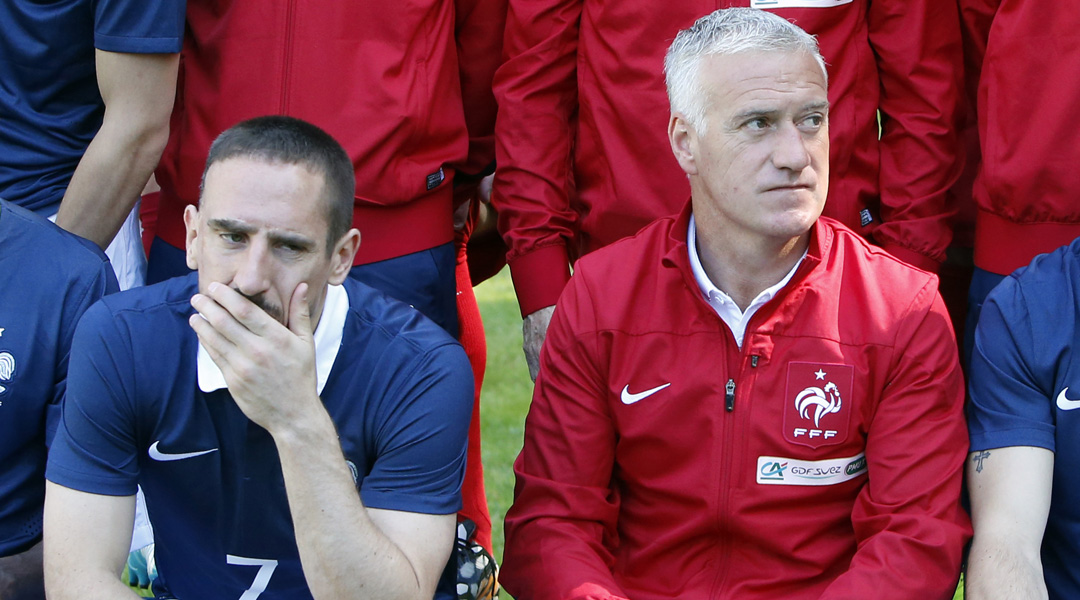
If Ribery’s absence was a stroke of good fortune, there was nothing lucky about Deschamps’ decision to omit Samir Nasri. The English press would have you believe this was a controversial call, but the truth is that no matter how well the Manchester City midfielder had performed in 2013/14, he wouldn’t have been on the plane to Brazil.
The best features, fun and footballing quizzes, straight to your inbox every week.
Nasri has had his fair share of spats for France down the years and was seen as too abrasive for the hothouse atmosphere of a major international tournament. It was reported that as many as four other France players approached Deschamps some months ago, asking him to leave Nasri out of the squad. Given those reports and the fact that well-documented disputes that have marred recent France campaigns at major tournaments, Nasri was bound to be frozen out.
Deschamps has made other, lower-profile but equally significant squad-selection decisions that have played a key role in France getting the balance right off the pitch. Take his choice for No. 3 goalkeeper, for example – Mickael Landreau. Few observers believe the Bastia shot-stopper is one of France’s best three goalkeepers, but Deschamps made it clear that, in his opinion, the No.3 goalkeeper in any squad has a particularly important job.
Deschamps was looking for someone grounded, self-motivated, professional and capable of keeping his spirits high while accepting he stands virtually no chance of kicking or catching a ball in competitive action. Deschamps knew Landreau would deliver on all fronts, so picked the former PSG goalkeeper ahead of technically better goalkeepers.
In midfield, Rio Mavuba was selected for similar reasons. Mavuba is a naturally positive guy – “he must be a great friend,” Roma coach Garcia once said approvingly of the man that was his captain at Lille – and a real mood-setter in any squad he’s part of. Mavuba’s bubbly, non-confrontational style unquestionably played a part in him getting the nod over rivals for a seat on the plane.
A band of brothers
None of this is a surprise – Deschamps knows better than anyone that tournament triumphs are built on endless, anonymous hours tucked away at the team headquarters as much as on moments of brilliance on the pitch.
Deschamps was a member of a perfectly united 1998 World Cup-winning squad that had a ‘band of brothers’ feel to it. As captain, he was effectively coach Aime Jacquet’s eyes and ears on and off the field, and had an almost pastoral role in ensuring everybody got along while staying utterly focused on the ultimate goal.
Deschamps was also influenced by his time in the France team during the first half of the 1990s, when the squad was almost torn apart by tensions and rivalries involving players from France’s two biggest clubs at the time, Marseille and PSG. He saw first hand the damage internal warring can do as the OM-PSG rivalry was a big factor in France missing out on the 1994 World Cup.
Before Euro 96, Deschamps learned a thing or two about the importance of making big squad decisions, as Jacquet resisted demands to recall David Ginola and Eric Cantona. The erstwhile France manager showed the importance of being your own man by insisting the time was right to build the team around the burgeoning talents of Zinedine Zidane and Youri Djorkaeff. He was vindicated when France lifted the World Cup two years later.
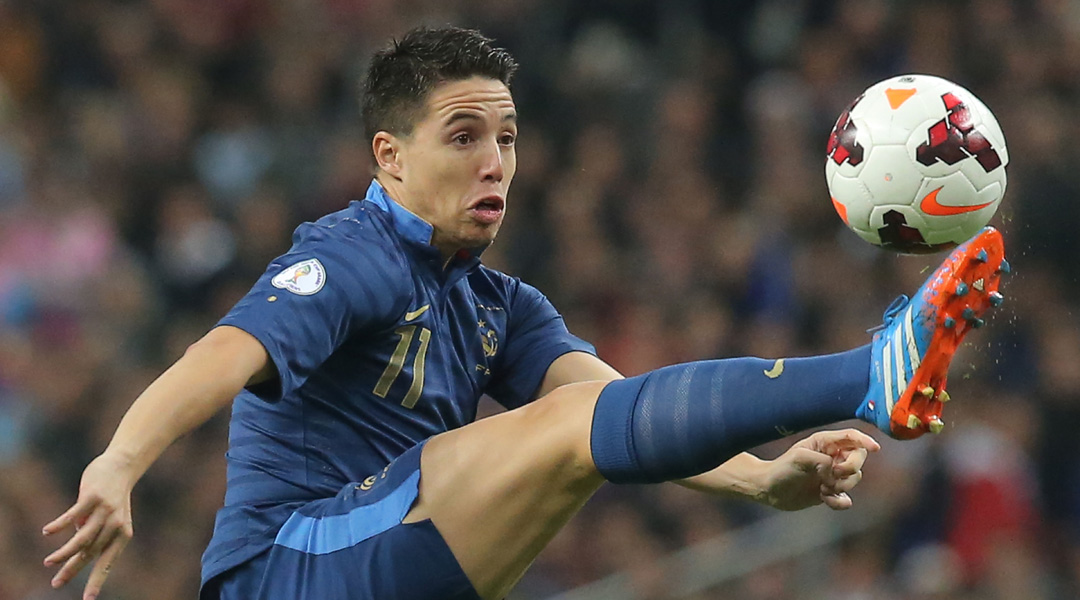
Another quality Deschamps shares with Jacquet is loyalty towards players that serve him well. There were quizzical looks from English fans when Mamadou Sakho got the nod over Laurent Koscielny for France’s opening game against Honduras – but for Deschamps, there was barely a decision to be made.
Koscielny had conceded a penalty and got sent off in France’s 2-0 play-off first leg defeat to Ukraine last November, before Sakho came in and produced a sensational individual performance to score two of France’s three goals as they qualified in style in Paris four days later.
After that turn of events, Deschamps had no hesitation in putting Sakho above Koscielny in the pecking order – and, while Koscielny might not have liked it, it’s the sort of decision players cannot really argue with so end up respecting.
There have been further examples of Deschamps’ savvy brand of man-management since the team arrived in Brazil. Most notable was the decision to drop Paul Pogba after the Juventus midfielder’s temperamental display in their opening fixture against Honduras.
Officially, Pogba was “rested” for France’s next match against Switzerland, but you can be sure the midfielder will have got the message. The 21-year-old than responded in the best possible way – as players performing for Deschamps often do – by scoring the opener in France’s 2-0 last 16 win over Nigeria.
Deschamps’ ability to foster a fair, egalitarian system has clearly been fundamental in the remarkable unity France have shown on and off the pitch. As Sakho said earlier this week: “Since the France-Ukraine [play-off] game, something’s clicked. We’ve built something – the spirit in the camp has changed. Deschamps has played a really big part in that. It’s a youthful group, but there’s a good relationship between the younger and the older players.”
The last time these things were said about a France squad with any conviction was in 1998. Deschamps has managed to fend off those comparisons so far – but he’ll struggle to do so if France beat Germany to claim a place in the semi-finals. When united, Les Bleus always take some stopping – and they’re certainly united at the moment.
James Eastham is a specialist writer covering French football. He has written for The Guardian, The Independent and When Saturday Comes magazine. He’s interviewed many leading figures in the French game, including Didier Deschamps and Kylian Mbappe. For a decade he also worked as a freelance football scout, covering games at all levels from U16 to the senior national team across France
 Join The Club
Join The Club










